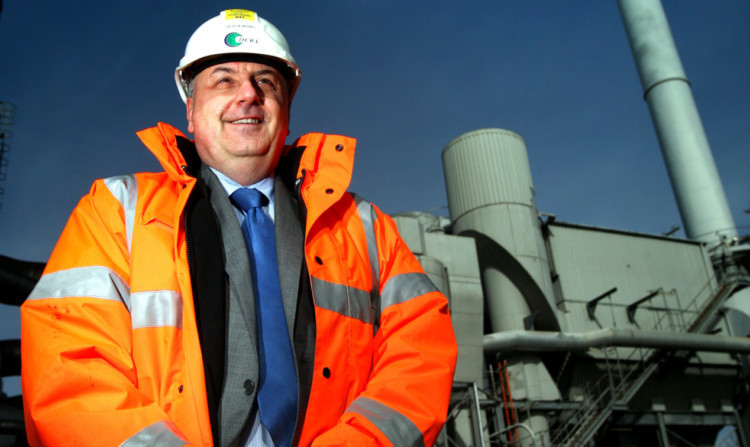The Dundee Energy Recycling Ltd (Derl) energy-from-waste plant is exceeding expectations by recycling a greater volume of waste from Dundee and Angus than predicted since its £13.5 million modernisation.
Six months after the two upgraded boilers were activated, the Baldovie plant is operating at 84.5% of capacity.
That equates to 110,000 tonnes of waste a year collected from Dundee, Angus and Aberdeenshire council areas.
The success of Derl means the volume of domestic and industrial refuse that needs to be buried as landfill is reduced to a negligible level.
Managing director Alan Jones said he was very pleased by the progress of the 14-year-old plant since its serious fire in 2012 an event now seen as a cloud with a silver lining.
“Before the fire we were achieving an efficiency level of 65% and we had problems with the maintenance of the old equipment, which caused periodic shutdowns,” he said.
“We needed to modernise the process and install better equipment so that we didn’t need to shut down so often to fix problems, and also to increase our operational efficiency.”
With an £8 million loan from Dundee City Council plus a fire insurance settlement of £5.5 million, the damaged areas were reinstated, both boilers refurbished and the tipping hall floor replaced.
A new computer control system has been installed and the continuous emissions monitoring system is soon to be upgraded.
Mr Jones continued: “After six months of both boilers working we are in a very good position.
“Not only have we exceeded our operational capacity target and recycled more waste, we are producing more electricity today’s reading was 10.6 megawatts with eight megawatts going into the National Grid.
“The money we are earning from generating electricity and waste disposal has allowed us to repay the first £500,000 loan instalment to the council. We are very much where we hoped we would be, having gone through the pain of the fire and secured additional investment.
“This is the only energy-from-waste plant in mainland Scotland processing municipal waste, and we can assure the people and councils of Dundee and Angus that their waste is being recycled at a plant that is operating well.”
There is more to look forward to with the possibility of further waste recycling contracts from local authority and other customers, and an opportunity to sell the plant’s heat.
A customer could be the district heating system being considered for homes in the nearby Whitfield estate.
More jobs could also result from future developments on the site.
Derl’s existing operational contract is nearing an end and a new waste management operator is being sought in a process governed by European legislation and managed by owners Dundee City Council.
The plant was recently given a clean bill of health by NHS Tayside, which found no evidence of the incinerator causing ill health in the community. The Scottish Environment Protection Agency, which monitors the plant, said: “Derl has been assessed as being broadly in compliance with the requirements of the pollution prevention and control regulations.”
